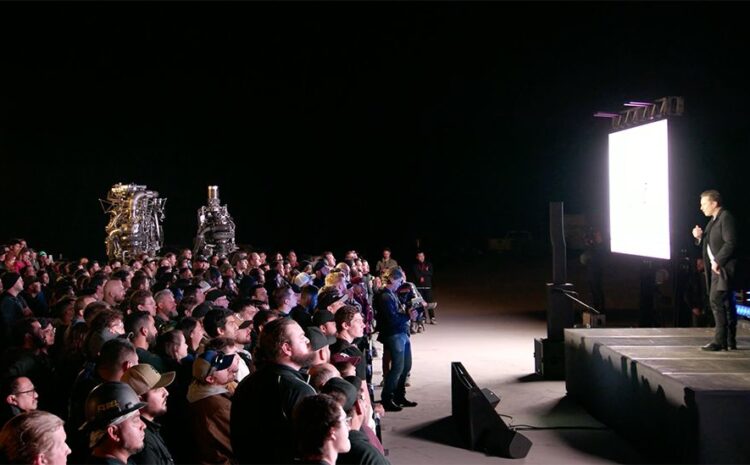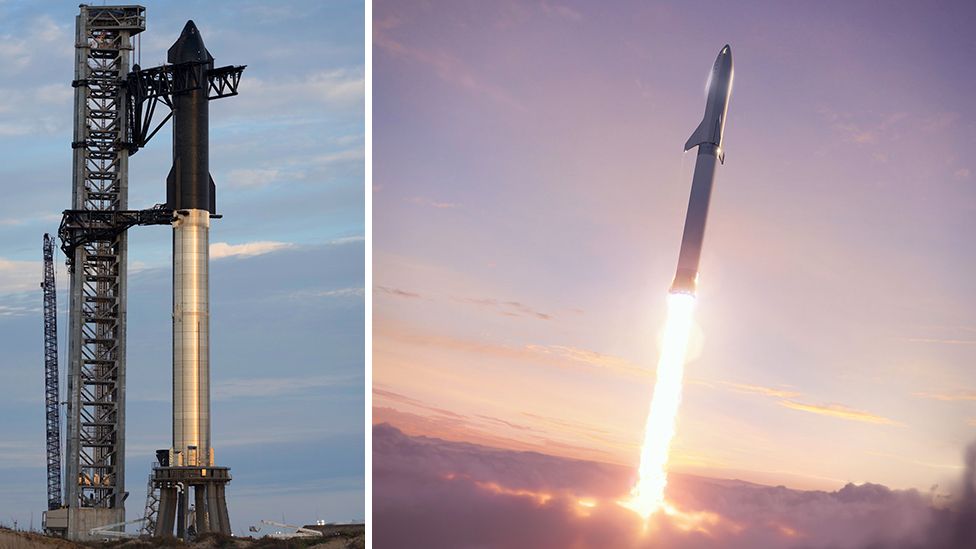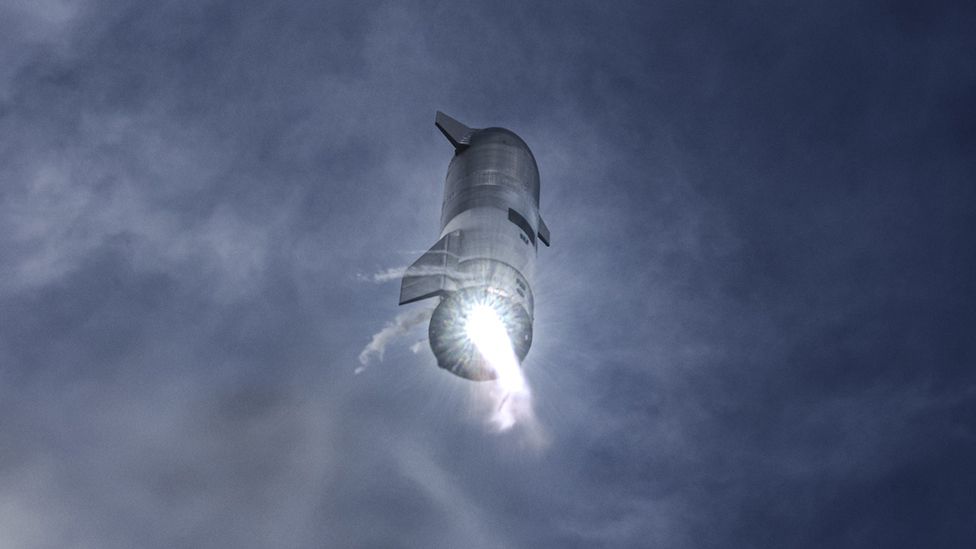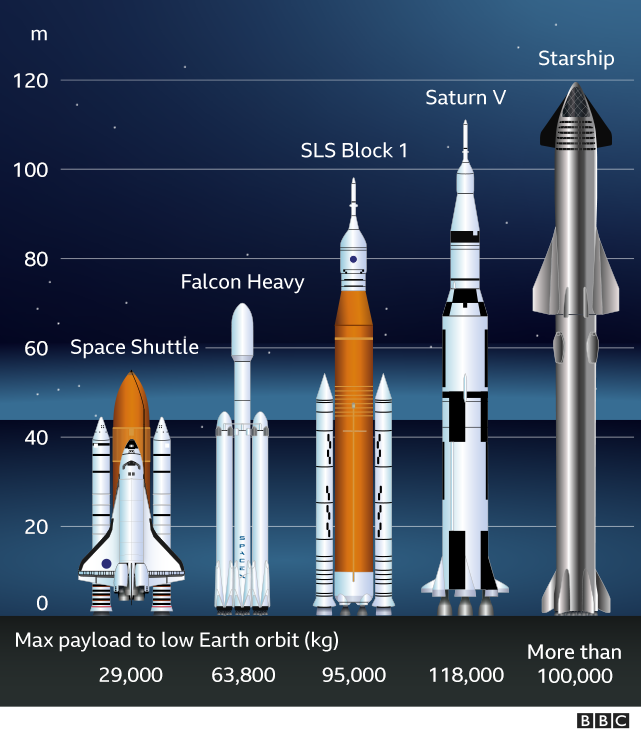
IMAGE SOURCE, SPACEX

Jonathan Amos
Science correspondent
@BBCAmoson Twitter
Elon Musk is hopeful he can launch his new monster rocket system in perhaps a couple of months from now.
In a presentation made while standing in front of what he calls the Starship, the US entrepreneur said the vehicle was close technically to being ready.
Much depends now on the Federal Aviation Administration. It’s the licensing authority and it will not issue a permit to fly until an environmental assessment is complete.
This should report back by March.
“I think we’re tracking to have the regulatory approval and hardware readiness around the same time,” he told the audience at his SpaceX company’s R&D facility in Boca Chica, Texas.
“Hopefully, you know, basically a couple of months for both.”
Mr. Musk said that if the FAA process demanded further investigations, it would lead to a delay of many months as flight operations were shifted to the Kennedy Space Center in Florida where another launchpad for Starship is under construction.
Thursday’s presentation was the first formal update Mr Musk had given on the progress of Starship’s development in two years.
And while the level of activity at Boca Chica in the intervening time has been intense, Mr. Musk didn’t reveal much that wasn’t already public knowledge.
He discussed niche engineering details on rocket engine design, which will have delighted super-fans, and there was a glossy new animation that envisaged a crewed Starship mission to Mars, but the SpaceX CEO was shy about talking through the business opportunities that were emerging for the new launch system.
 IMAGE SOURCE, SPACEX
IMAGE SOURCE, SPACEX IMAGE SOURCE, SPACEX
IMAGE SOURCE, SPACEX“There’s going to be some future announcements that I think people will be pretty fired up about,” he said. “There are a lot of additional customers that will want to use Starship [but] I don’t want to steal their thunder; they’re going to make their own announcements.”
When it eventually takes to the sky, it will get off the pad with more than twice the thrust of the vehicles that sent men to the Moon in the 1960s and 1970s.
The main engines on the Apollo Saturn V rockets delivered some 35 meganewtons (nearly 8 million pounds of force) when ignited. The first stage of Starship, which is called Super Heavy, should achieve around 75 meganewtons.

The inaugural test flight – whenever it happens – will see the Super Heavy booster hurl the Starship into space for a 90-minute, once-around-the-Earth trip, which will end with a disposal “landing” in waters off the Hawaiian islands in the Pacific. The Super Heavy itself will be ditched in the Gulf of Mexico.
Ultimately, though, SpaceX wants both segments of future vehicles to make controlled touchdowns, on land or on sea platforms, so they can be re-used.
At Boca Chica, the launch tower sports enormous mechanical arms, nicknamed “chopsticks”, that would endeavor to catch Super Heavy as it hovered near the ground. These arms would then place the booster straight back on its launch mount, ready for the next mission.
The rocket system could also ferry people and cargo quickly around the globe. Putting satellites in orbit is another obvious application. Indeed, Mr. Musk sees Starship as central to the ongoing deployment of his Starlink orbital broadband network.
“Once we make this work, it’s an utterly profound breakthrough in access to orbit,” he said.
“When aircraft first came along, they were viewed as toys. When the Wright Brothers first took off, most people were just riding horses; they would not have imagined that there would be tens of thousands of aircraft flying to every corner of the world. So, this really could be a profound situation and we really can’t even imagine all the use-cases at this point.”
